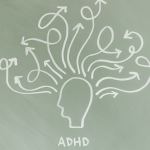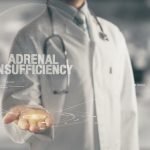FMT Enemas Gaining Traction for Other Conditions Than C. Dif.
Node Smith, ND
Fecal microbiota transplantation (FMT) is increasing in its popularity as the link between the gut microbiome and systemic disease is targeted by practitioners. Unfortunately, the current recommendations for this treatment only allow for its use in cases of C. difficile. However, a recent presentation at the International Liver Conference 2018 in Paris, France, favored using FMT in the treatment of liver cirrhosis and hepatic encephalopathy (HE).1
Recent presentation favors using FMT in the treatment of liver cirrhosis and hepatic encephalopathy (HE)
Jasmohan Bajaj from Virginia Commonwealth University and McGuire VA Medical Center in Richmond, USA, presented research showing that a single FMT treatment produced clinical improvements as well as cognitive improvements in individuals with cirrhotic liver disease and hepatic encephalopathy (HE), which is a common sequela of liver cirrhosis.
Liver cirrhosis has a high rate of complications, including HE resulting in recurrent emergency room visits, and irreversible brain injury; it has a poor prognosis overall. There is also evidence that individuals suffering from HJE have a change in their abundance of beneficial gut flora – specifically Lachnospiraceae and Ruminococcaceae – and an increase in potentially pathogenic Enterobacteriaceae. This microbial profile has been linked to inflammation and cognitive impairment in patients with liver cirrhosis and HE in the past. The intention of the research study was to “evaluate whether FMT was safe in patients with recurrent HE compared with SOC alone,” explained Dr. Bajaj.
Study looked at 20 outpatient men with cirrhosis and recurrent HE
The study looked at 20 outpatient men with cirrhosis and recurrent HE. All were receiving standard-of-care (SOC) treatment. The original study was 5-months long and followed participants after receiving a single FMT treatment. 20 days into the study, cognitive impairment had improved and in the 5-months following none of the FMT individuals had experienced an HE episode or a hospitalization. Further follow-up (presented at the conference), showed the FMT arm of the study to have sustained these benefits of improved cognitive function and no HE events compared to the SOC group for 1 year.
FMT treatment utilized enemas prepared from a single stool donor from a universal donor bank with a high Lachnospiraceae and Ruminococcaceae profile
The FMT treatment utilized enemas prepared from a single stool donor from a universal donor bank with a high Lachnospiraceae and Ruminococcaceae profile; FMT enemas were prepared using a single stool specimen from this donor
Authors recognize the limited power of the study, however conclude that FMT treatment is a benefit to this patient population and study results warrant further follow-up
The authors of the study recognize the limited power of the study, however conclude that FMT treatment is a benefit to this patient population and the study results warrant further follow-up through multi-center research study of larger populations.
Source:
- Bajaj JS, et al. Fecal microbiota transplant from a rational stool donor improves hepatic encephalopathy: a randomized clinical trial. Hepatology. 2017;66(6):1727-38.
Image Copyright: <a href=’https://www.123rf.com/profile_anytka’>anytka / 123RF Stock Photo</a>
 Node Smith, ND, is a naturopathic physician in Portland, OR and associate editor for NDNR. He has been instrumental in maintaining a firm connection to the philosophy and heritage of naturopathic medicine among the next generation of docs. He helped found the first multi-generational experiential retreat, which brings elders, alumni, and students together for a weekend camp-out where naturopathic medicine and medical philosophy are experienced in nature. Four years ago he helped found the non-profit, Association for Naturopathic ReVitalization (ANR), for which he serves as the board chairman. ANR has a mission to inspire health practitioners to embody the naturopathic principles through experiential education. Node also has a firm belief that the next era of naturopathic medicine will see a resurgence of in-patient facilities which use fasting, earthing, hydrotherapy and homeopathy to bring people back from chronic diseases of modern living; he is involved in numerous conversations and projects to bring about this vision.
Node Smith, ND, is a naturopathic physician in Portland, OR and associate editor for NDNR. He has been instrumental in maintaining a firm connection to the philosophy and heritage of naturopathic medicine among the next generation of docs. He helped found the first multi-generational experiential retreat, which brings elders, alumni, and students together for a weekend camp-out where naturopathic medicine and medical philosophy are experienced in nature. Four years ago he helped found the non-profit, Association for Naturopathic ReVitalization (ANR), for which he serves as the board chairman. ANR has a mission to inspire health practitioners to embody the naturopathic principles through experiential education. Node also has a firm belief that the next era of naturopathic medicine will see a resurgence of in-patient facilities which use fasting, earthing, hydrotherapy and homeopathy to bring people back from chronic diseases of modern living; he is involved in numerous conversations and projects to bring about this vision.










